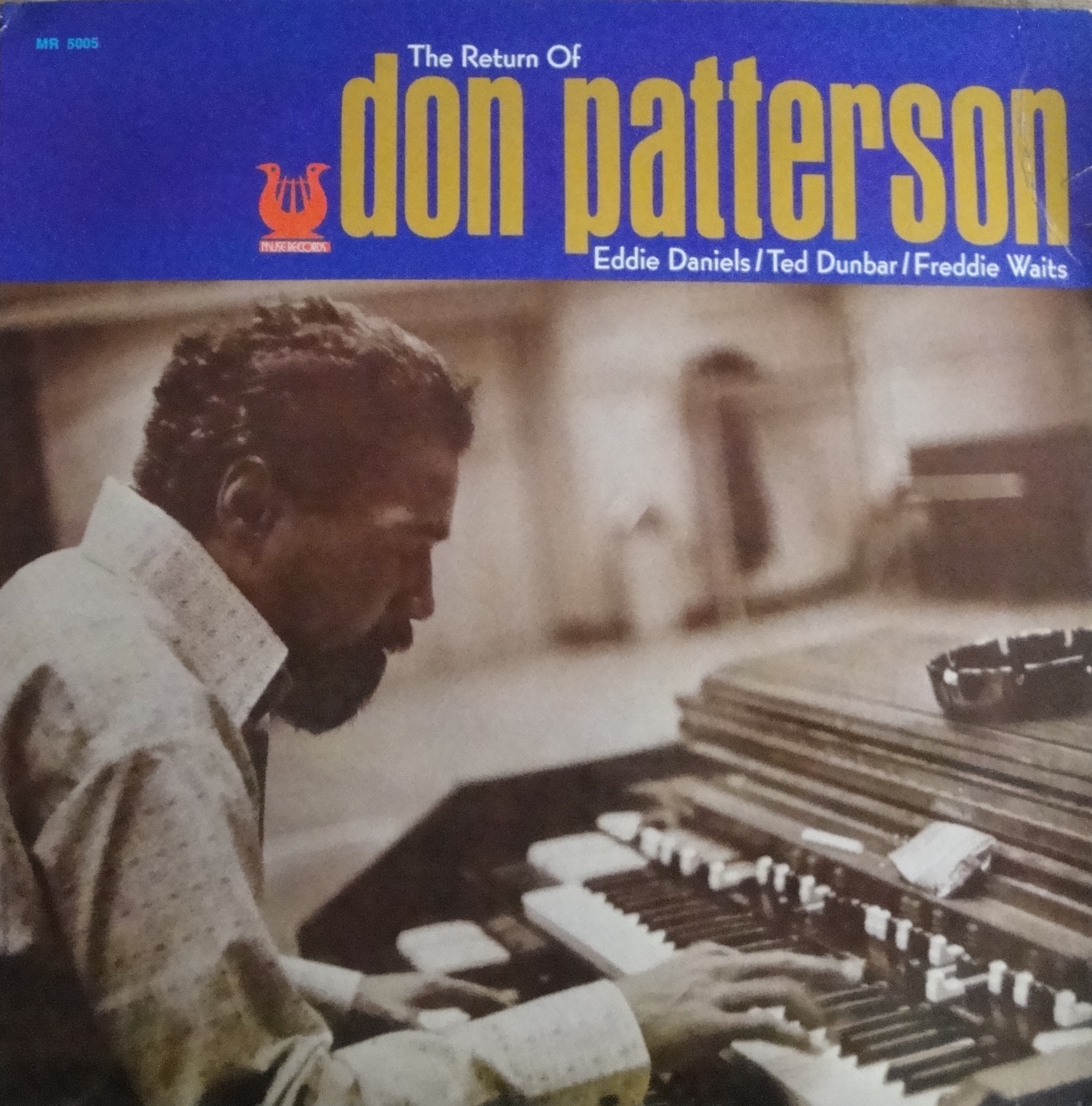The Return Of Don Patterson was a return to the recording studio for the Columbus, Ohio born organist. Patterson had a steady run of solo recordings for Prestige in the sixties, until drug problems sent his career off on a wild tangent. During the interval of 1969-71 Patterson was decidedly under the radar, gigging exclusively in and around Gary, Indiana. The session for The Return Of Don Patterson found Patterson in excellent form, cooperating well with a remarkably proficient group of players he was heretofore unacquainted with.
Personnel
Don Patterson (organ), Eddie Daniels (tenor, soprano & alto saxophone), Ted Dunbar (guitar), Freddie Waits (drums)
Recorded
on October 30, 1972 at RCA Studios, NYC
Released
as Muse 5005 in 1974
Track listing
Side A:
Jesse Jackson
Theme From The Odd Couple
Lori
Side B:
Theme From Love Story
The Lamp Is Low
It opens with Jesse Jackson, a blues with a lithe but dynamic back beat, dedicated to the ‘Country Preacher’. It’s evident from the start that this is not going to be a generic soul jazz record. First in line, Ted Dunbar immediately makes this clear. He employs a dry, ‘plucky’ sound and an authoritative attack and just when you think he shall go left he turns to the right; in short, he plays very interesting guitar devoid of clichés. Patterson lays down funky single note lines, using his right hand almost exclusively, which keeps your attention focused.
For the remainder of the album – that sounds crisp and fresh after forty years, indeed to the extent that it could convincingly disguise as a contemporary record – the band proves to be capable of handling varied repertoire. I’m particularly enamoured of the way saxophonist Eddie Daniels sweetly states the theme (no pun intended) of Theme From The Odd Couple and of the sense of dynamics and swing he employs in his solo in Theme From Love Story – a subtle march that evolves into a driving shuffle. Soulful and intelligent blowing, both on alto and soprano. A treat! The latter is but one example of the propulsive rhythm that drummer Freddie Waits provides; using tasteful and spontaneous accents throughout, Waits is volatile at the song’s climax, kicking his bandmates’ butts with crazy, amazing press rolls.
Master of ceremony Don Patterson is in fine form himself, concluding his solo in bassist Jimmy Garrison’s bebop figure Lori with an organist’s take on Wes Montgomery-style octaves and transforming Maurice Ravel’s The Lamp Is Low into a typically coherent and endearing ballad.
Don Patterson was known as a melodically creative organist and bandmates Freddie Waits and Ted Dunbar could be described as young veterans with a bag full of diverse experience. But at the time many people must’ve been surprised by the confident and unorthodox work of Eddie Daniels. A versatile reedman, he recorded one album for Prestige in 1967 – First Prize – and held an underrated tenor chair in the Thad Jones-Mel Lewis Orchestra; thereafter Daniels has evolved into a renowned innovator of the clarinet, jazz and classical. Considering Daniels’ excellent technique on this album, in hindsight this seems quite logical.
Why not conclude with one of Ira Gitlers’ apt and sensible statements in his sleevenotes of The Return Of Don Patterson?
“There are a lot of people who turn up their noses at the cliche that the tenor-organ combination has been for some time now. This set is for them. And it will also open the noses of the freaks who can’t get enough of saxophone and organ. Don Patterson doesn’t overwhelm you. He’s got so many other things going, he doesn’t have to do it that way.”
Indeed, he doesn’t. I’d like to add that one of the many other things Patterson’s got going is an outstanding bunch of sidemen.


2 thoughts on “Don Patterson The Return Of Don Patterson (Muse 1972/1974)”